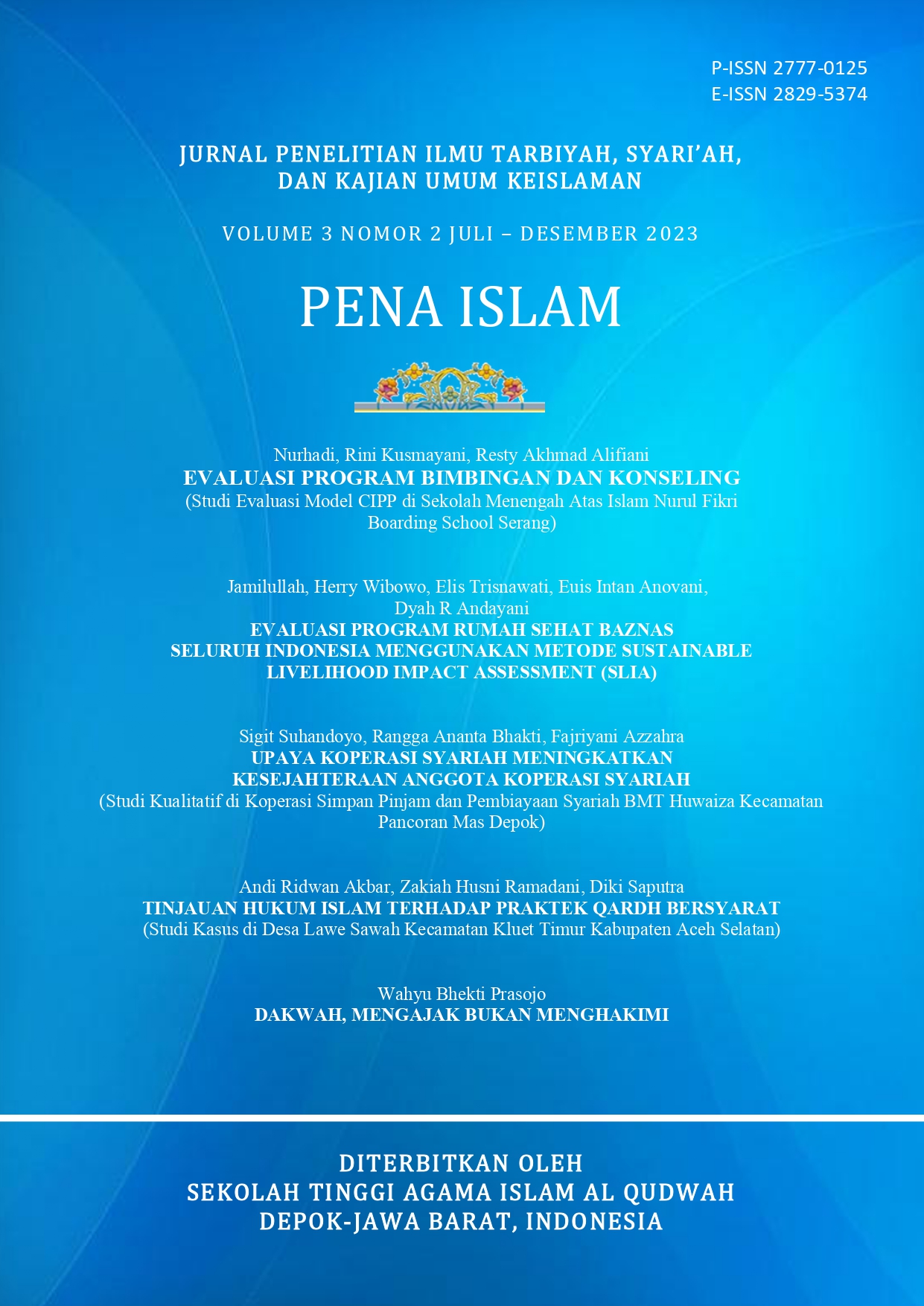EVALUASI PROGRAM RUMAH SEHAT BAZNAS SELURUH INDONESIA MENGGUNAKAN METODE SUSTAINABLE LIVELIHOOD IMPACT ASSESSMENT (SLIA)
Abstract
Health care is one of the basic rights of every human being from all social
stratifications. Upper middle class people with good socioeconomic status can
easily access health services, but other sections of society are the opposite. From
these conditions, support is needed to get equal opportunities for every human being
to get access to health. The free health service program (RSB – BAZNAS Health
House) is still growing, so it is necessary to evaluate the impact of the program.
This study uses a qualitative and quantitative approach to measure the impact of
RSB's free health services, both in-building and out-of-building services. The
findings of this study will be used as an evaluation material to improve the
performance of the RSB and also increase the participation of stakeholders, so that
these two elements will provide good health services for the community. This
research uses evaluation with sustainable livelihood analysis. Evaluation of the
impact assessment between before and after the program by measuring five
community assets, namely natural assets, human resource assets, physical assets /
infrastructure, financial assets and social assets. Data was collected by means of indepth interviews, literature study and field observations. Data were collected in all
RSBs, while participants were selected using a mixture of convenience and
purposive sampling methods. The findings show that from the evaluation criteria
for the impact of the RSB program throughout Indonesia, there was an increase in
community assets on average, namely before the program 2.33 and after the
program 3.62 with a change variance of 1.29, this indicates that the program has a
positive impact and has succeeded in increasing the status of public health assets
from poor or poor conditions. susceptible to moderate or near ideal conditions.




